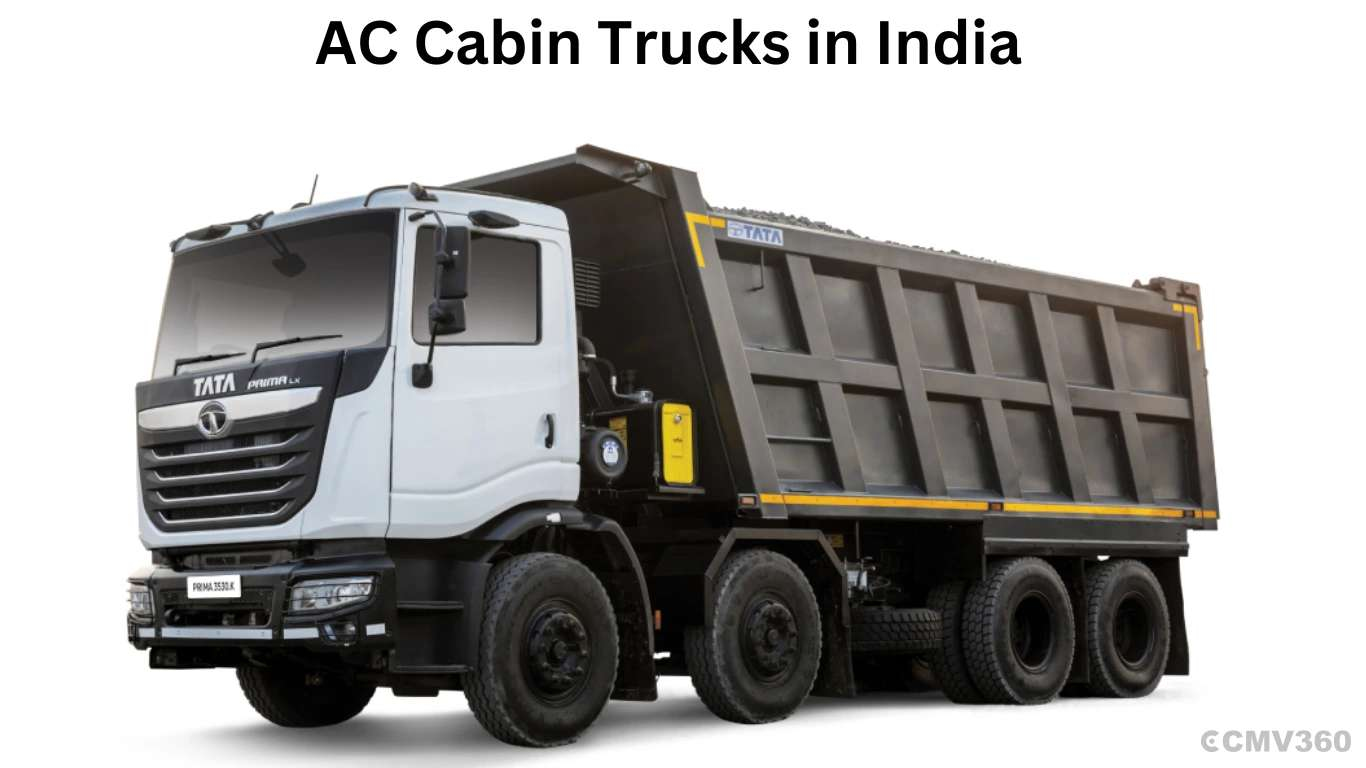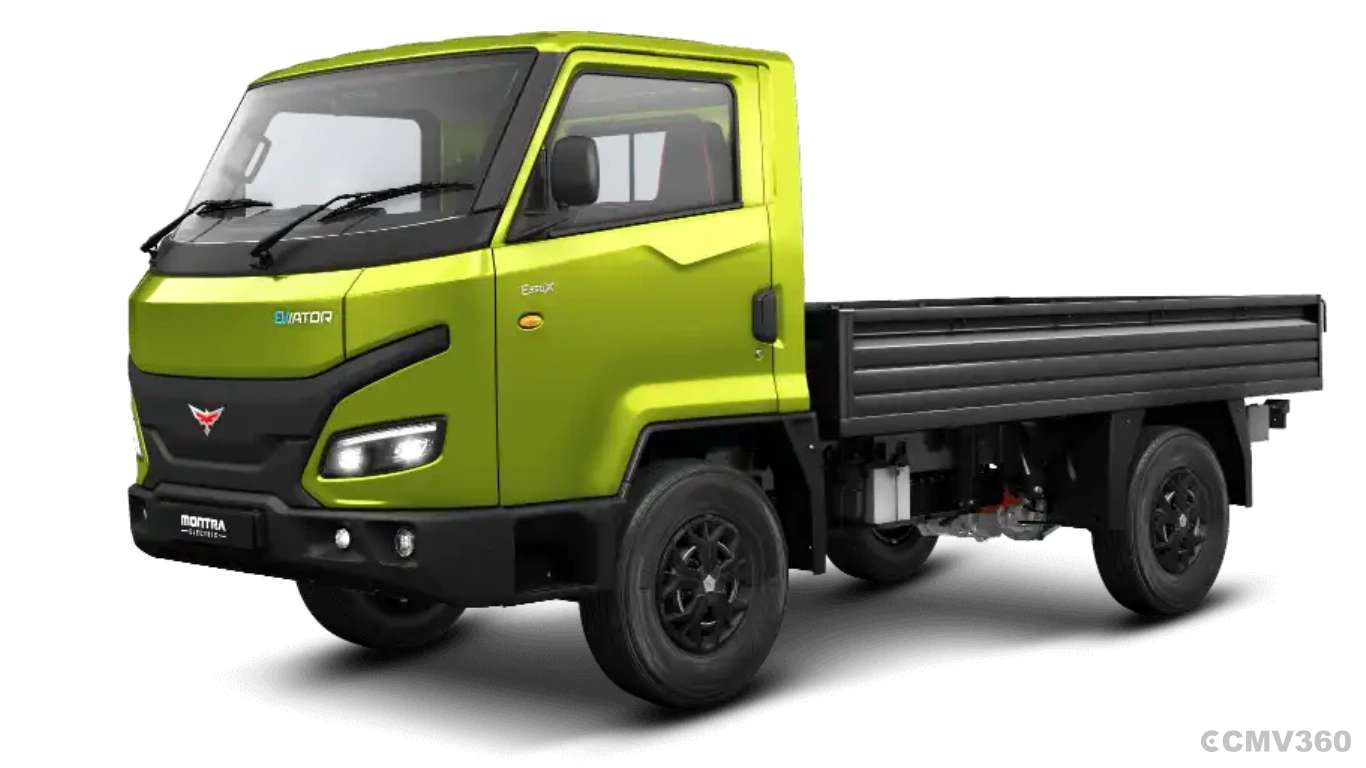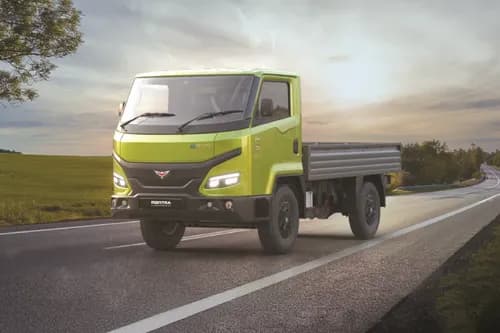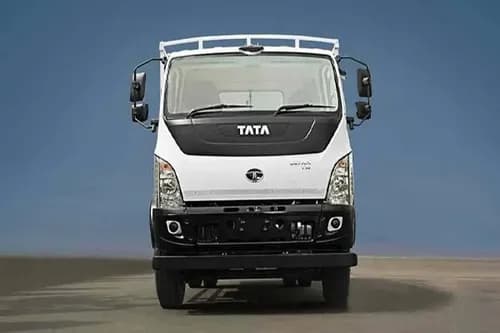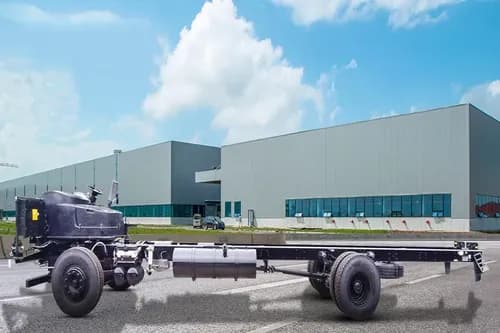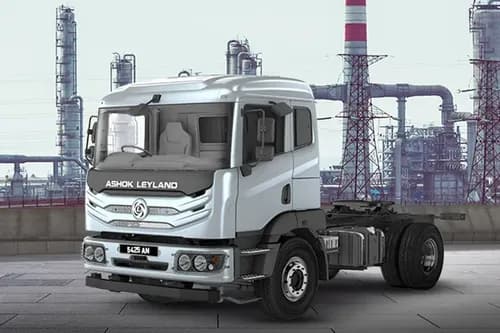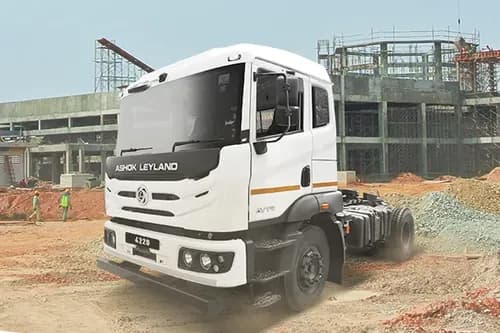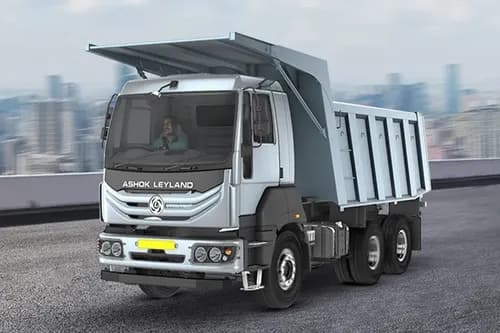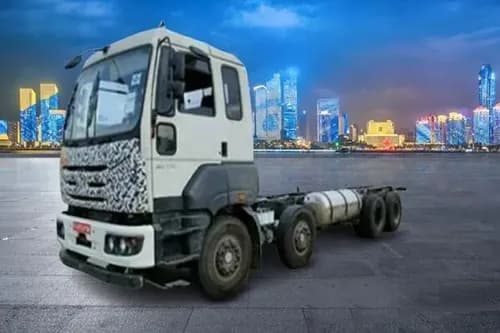Ad
Ad
Here’s Why India Needs Electric Trucks Now
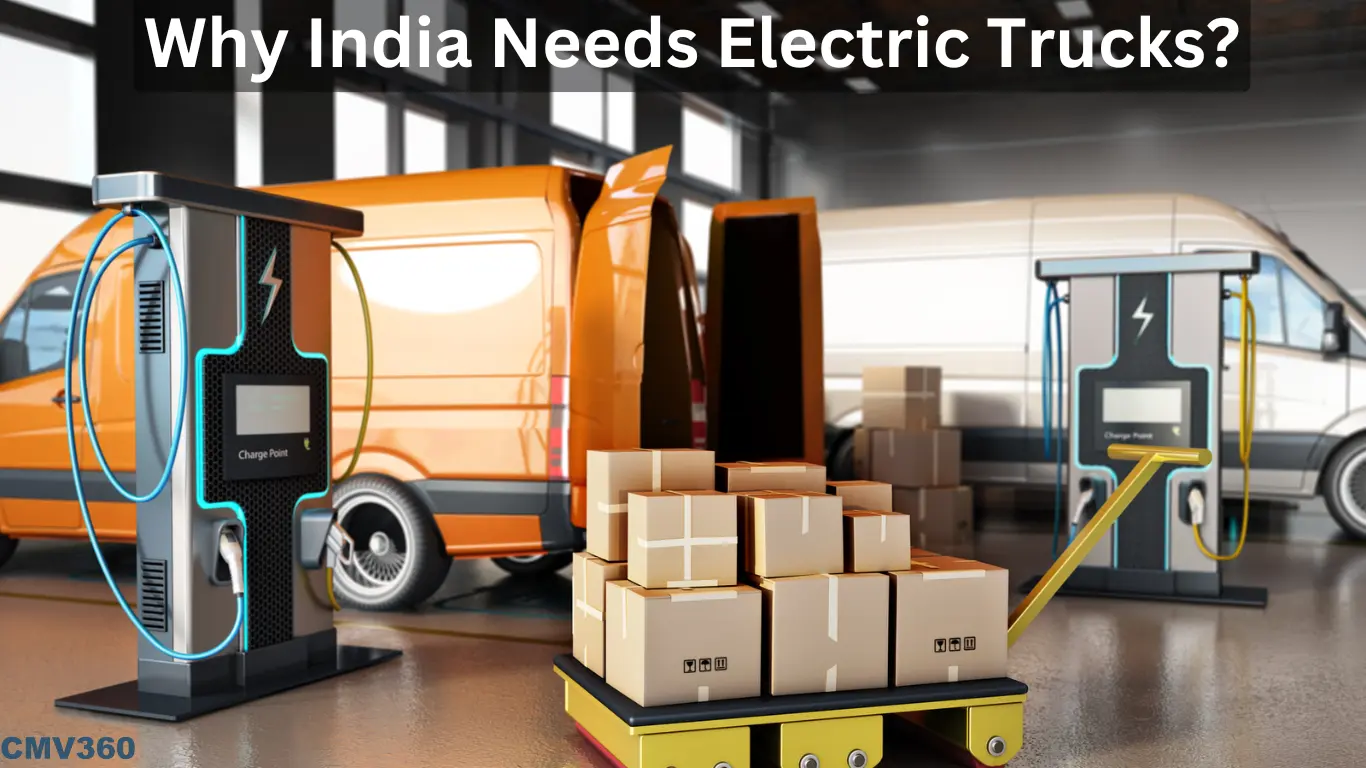
The global automobile industry is shifting dramatically toward electric vehicles (EVs), driven by the urgent need to reduce carbon emissions and rapid technological advancements. While electric cars and bikes have gained attention, the electrification of heavy-duty trucks represents the next major leap, particularly in India. This article discusses Why India Needs Electric Trucks Now.
Need for Change
The transportation industry is the fastest-growing source of carbon emissions, with road transport accounting for 90% of the sector's total energy consumption. In India, the rise in urbanization and e-commerce activity has led to increased emissions, showing the need for clean transportation, especially for freight.
India's 2.8 million trucks make up only 2% of on-road vehicles yet account for over 40% of road transport emissions and fuel consumption. This raises the question of whether the net zero ambitions will make electric trucks the next frontier for India's auto industry.
Driving Towards Net Zero
Electric trucks offer an opportunity to reduce carbon emissions and improve air quality, aligning with India's climate goals. Unlike diesel engines, electric trucks rely on batteries for propulsion, which leads to lower energy consumption for the same distance travelled.
A dedicated transition to zero-emission trucks could result in 2.8-3.8 gigatonnes of cumulative CO2 savings by 2050, equating to or exceeding India's current annual GHG emissions.
Furthermore, with shifting fossil fuel prices and rising environmental consciousness, there is growing awareness on the need for sustainable and economically viable alternatives. Adopting electric vehicles can drastically cut India's energy consumption by increasing energy efficiency and decreasing reliance on imported oil.
Currently, road freight accounts for more than 25% of oil import expenditures and is predicted to increase over four times by 2050. ZET adoption has the potential to remove 838 billion liters of diesel usage by 2050, saving Rs 116 lakh crore in oil expenditure.
However, developing renewable energy sources to power these charging stations is critical. Without this, the environmental benefits of electric trucks may be compromised by a prolonged reliance on fossil fuels for electricity generation.
According to the International Energy Agency and the National Renewable Energy Laboratory, electric trucks can be charged with renewable energy sources such as solar and wind, significantly reducing overall energy use.
While the decrease in carbon emissions and reduced reliance on oil imports are the most important factors motivating the government to encourage this transition, electric trucks are gaining popularity among many people.
According to Nayi Soch Ki Sawaari, an effort that raises awareness about electric trucks, more than 80 per cent of drivers expressed interest in testing out electric vehicles. Many others mentioned the potential for a better driving experience with clutch-free drive and advanced air-conditioned cabins.
What is the concept behind "Nayi Soch Ki Sawaari" and how will it affect India's commercial vehicle industry?
Kritika Mahajan: Nayi Soch Ki Sawaari is a project that raises awareness about electric trucks in India. We are focusing on increasing electric truck adoption rates because they are environmentally friendly.
This program has provided us with knowledge on how the transportation sector is growing and how commercial-grade electric vehicles may help truck drivers and fleet owners in general. Furthermore, based on our findings, we recognize that every change in the sector requires time for information to spread.
As a result, we are actively striving to improve awareness among the end users, which include drivers, mechanics, fleet operators, and fuel pump operators. They are mostly involved in the haulage and commercial industries, which are sometimes overlooked in legislative discussions.
In this regard, there are now some conversations about electric vehicles and electric heavy-duty vehicles, particularly at the policy or think tank level. As a result, while these discussions are taking place, we want to ensure that these underserved groups are aware of it.
Under this project, we discovered that nearly 80 percent of people were hearing about electric trucks for the first time through such discussions, despite the fact that they were aware of the existence of electric three-wheelers. Overall, we want to better their lives and thank them for being the foundation of the consumer product utilisation process through mobility."
Also Read: CNG vs Electric Trucks in India: Which is Better and Why?
Benefits of Electric Truck
Another benefit was being able to help build a clean and healthy environment for their children's future. Some even suggested that the charging period for trucks would ensure that they had enough downtime during long hauls.
With these advancements, the move to electric trucks provides a great chance to address gender imbalances in the automotive and logistics industries. Traditionally male-dominated, these industries can benefit from laws and programs that promote gender diversity and inclusion.
This could even assist improve the driver-to-truck ratio, which is now at 750 drivers for every 1,000 trucks. Empowering women through targeted training programs and inclusive legislation can help to spread the benefits of the electric truck revolution.
Despite the drivers' enthusiasm, convincing fleet owners will require far more than improved driving conditions and environmental benefits. Unless range anxiety, misunderstandings about safety and performance, high upfront prices, insufficient charging infrastructure, and other customer concerns are addressed, the changeover will remain a challenge.
However, these challenges provide opportunities for creativity and collaboration. For example, advances in battery recycling and second-life uses have the potential to generate new industries and job possibilities. Similarly, the creation of localised charging options can encourage technological innovation and entrepreneurship.
The success of electric trucks is dependent on a broad and stable ecology. The shift to electrification will necessitate a collaborative effort among all stakeholders, including manufacturers, fleet operators, government agencies, and industries.
Manufacturers must concentrate on manufacturing vehicles that fit the unique requirements of the Indian market, such as dealing with varying road conditions and heavy cargo. Governments could help promote this shift by implementing supportive policies, incentives, and infrastructure development.
Fleet owners and operators must be educated on the long-term economic advantages and operational efficiencies of electric trucks. Drivers should be educated to manage new technology, assuring safety and peak performance.
Addressing Air Pollution and Health Concerns
India's air quality has been getting worse, and transportation is a big part of the problem. Diesel trucks, which are widely used, release harmful pollutants like nitrogen oxides (NOx) and particulate matter (PM). These pollutants can damage the environment and harm people's health, leading to breathing problems, heart diseases, and even early deaths.
Electric trucks offer a cleaner alternative because they don't produce these harmful emissions. If India switches to electric trucks, it can reduce pollution and make the air cleaner in both cities and rural areas. This change would benefit the environment and help improve public health, reducing the pressure on healthcare systems.
Are Electric Trucks the Future of Cargo Mobility?
The trucking industry is experiencing rapid growth, driven by advancements in telematics, communication technologies, and rising supply and demand.
As a result, the logistics sector, which heavily relies on diesel-powered trucks, is anticipated to expand at a compound annual growth rate (CAGR) of 8% over the next three years, potentially reaching $330 billion by 2025.
Industry experts warn that if the demand for fossil fuel-powered commercial vehicles continues to rise, pollution levels could worsen considerably.
However, transitioning to electric vehicles offers a viable solution to reduce carbon emissions and safeguard the environment. Given these factors, electric trucks are poised to become the future of cargo mobility.
Also Read: How to Choose the Best Heavy-Duty Truck for Indian Roads
CMV360 Says
The need for electric trucks in India is undeniable. The move to electric trucks is a big step forward for India’s transportation sector. Tackling the challenges and working together can help the country build a cleaner, more sustainable future.
Electric trucks not only support climate goals but also open up new avenues for innovation and economic growth. As the industry grows, finding practical solutions and making sure everyone is informed will be key to making this transition work smoothly.
Features & Articles
Summer Truck Maintenance Guide in India
This article provides a simple and easy-to-follow summer truck maintenance guide for Indian roads. These tips ensure that your truck remains reliable and efficient during...
04-Apr-25 01:18 PM
Read Full NewsAC Cabin Trucks in India 2025: Merits, Demerits, and Top 5 Models Explained
From 1st October 2025, all new medium and heavy trucks must have air-conditioned (AC) cabins. In this article, we will discuss why every truck should have an AC cabin, it...
25-Mar-25 07:19 AM
Read Full NewsBenefits of Buying Montra Eviator In India
Discover the benefits of buying the Montra Eviator electric LCV in India. With best performance, long range, and advanced features, it's perfect for city transport and la...
17-Mar-25 07:00 AM
Read Full NewsTop 10 Truck Spare Parts Every Owner Should Know
In this article, we discussed the top 10 important truck spare parts every owner should know to keep their truck running smoothly. ...
13-Mar-25 09:52 AM
Read Full NewsTop 5 Maintenance Tips for Buses in India 2025
Operating a bus in India or managing a fleet for your company? Discover the top 5 maintenance tips for buses in India to keep them in top condition, reducing downtime, an...
10-Mar-25 12:18 PM
Read Full NewsHow to Improve Electric Truck Battery Range: Tips & Tricks
In this article, we will explore several tips and tricks to improve the battery range of electric trucks in India....
05-Mar-25 10:37 AM
Read Full NewsAd
Ad
Registered Office Address
Delente Technologies Pvt. Ltd.
M3M Cosmopolitan, 12th Cosmopolitan,
Golf Course Ext Rd, Sector 66, Gurugram, Haryana
pincode - 122002
Join CMV360
Receive pricing updates, buying tips & more!
Follow Us
COMMERCIAL VEHICLE BUYING BECOMES EASY AT CMV360
CMV360 - is a leading commercial vehicle marketplace. We helps consumers to Buy, Finance, Insure and Service their commercial vehicles.
We bring great transparency on pricing, information and comparison of tractors, trucks, buses and three wheelers.

